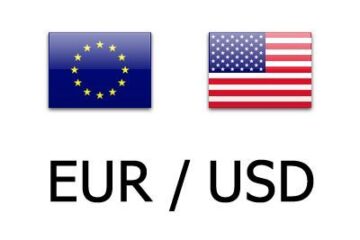The retailer has been investing heavily in drones, though many are skeptical that they will be more than a niche business for industry.
The legendary film producer Samuel Goldwyn, fed up with political themes in movies, once declared that “if you want to send a message, call Western Union.”
Okay, but these days if you want to receive a package, you may want to look up.
Drone-delivery services are expanding. Companies have taken to the air to avoid traffic, speed deliveries and, of course, save money.
Unmanned aerial vehicles are being used to deliver such items as vaccines, medical supplies, pizza, burgers, and sushi to name a few.
A March 2022 report by the consulting firm McKinsey & Co. found that more than 660,000 commercial drone deliveries were made to customers in the past three years and more than 2,000 drone deliveries are occurring each day worldwide.
The report projected that this year close to 1.5 million deliveries will be made by drones, about triple the number in 2021.
Amazon Takes ‘Careful First Steps’
In 2013, Amazon (AMZN) – Get Free Report Founder and now Executive Chairman Jeff Bezos raised eyebrows and a bit of doubt when he said the retail giant would be operating drones. Three years later, Bezos tweeted “First-ever #AmazonPrimeAir customer delivery is in the books. 13 min—click to delivery.”
Amazon Prime Air, the company’s drone service, said in July that it would begin operating in Lockeford, Calif., 40 miles southeast of Sacramento, and College Station, Texas, two hours northeast of Austin.
And on Dec. 22 the drones took off.
“First deliveries from our new sites in Texas and California,” David Carbon, vice president of Prime Air at Amazon, said on LinkedIn.. “These are careful first steps that we will turn into giant leaps for our customers over the next number of years.”
An Amazon spokesperson said the company was starting in these two locations and will gradually expand deliveries to more customers.
The spokesperson said Amazon worked with the Federal Aviation Administration and local officials in both locations “to obtain all necessary authorizations to conduct drone deliveries and will continue with that collaboration into the future as we look to expand the service.”
An FAA environmental assessment of drone services in College Station found “no significant impact” and said the service would not “affect the quality of the human environment.”
Amazon said in a June 13 blogpost that most drones are unable to sense and avoid other aircraft and obstacles.
The Amazon drones, the post said, has a sense-and-avoid system that will enable operations without visual observers, allowing them to operate at greater distances while reliably avoiding other aircraft, people, pets, and obstacles.
More Companies Using Drones
But drone usage has hit some turbulence along the way.
At least eight Amazon drones crashed during testing in the past year, Business Insider reported, including one last June that sparked a 20-acre brush fire in eastern Oregon after the drone’s motors failed.
There’s plenty of skepticism about the practicality of broad-scale use of delivery drones.
“[Because] of technical and financial limitations, drones are unlikely to be the future of package delivery on a mass scale,” The New York Times’ Shira Ovide reported in June.
And safety is a critical concern.
In 2018, hundreds of flights at Gatwick Airport near London were canceled following reports of drone sightings close to the runway.
In September a delivery drone crashed into power lines in the Australian town of Browns Plains and knocked out power for more than 2,000 customers.
A survey by the business intelligence firm Morning Consult found that 57% of the respondents said they had little or no trust in the devices for deliveries, compared with 43% who said they had “a lot” or “some” trust.
Respondents said they were worried about unsuccessful deliveries of items and threats to personal and data privacy related to using drones for delivery, including deliveries performed by Chinese-made drones.
Amazon is hardly alone in the drone business. Other companies using UAVs include FedEx (FDX) – Get Free Report, Microsoft (MSFT) – Get Free Report, Google parent Alphabet (GOOGL) – Get Free Report, and retail giant Walmart (WMT) – Get Free Report.
Walmart, the world’s largest retailer, said on Dec. 15 that its drone delivery service was available in select markets in Texas, Arizona and Florida.
David Guggina, senior vice president of innovation and automation with Walmart U.S., said in a May 24 release that for customers can order items totaling up to 10 pounds for a delivery fee of $3.99. “So, simply put, if it fits safely it flies.”
Walmart is aiming to build the capacity to deliver 1 million packages a year by drone.
“We are at a critical time in the drone-delivery industry,” the McKinsey report said. “Volume has grown dramatically in recent years, but the path ahead is not yet clear.”
“Regulations, customer acceptance, and cost will all determine whether the industry reaches its potential to disrupt global logistics or remains limited to isolated applications.”


